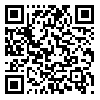BibTeX | RIS | EndNote | Medlars | ProCite | Reference Manager | RefWorks
Send citation to:
URL: http://tbj.ssu.ac.ir/article-1-1802-en.html
Background: Puberty is one of the most important periods of life in which very deep physiological, physical, and psychological changes occur and the mental and physical discipline of adolescents are disturbed. In mental health, recognition of these developments is important especially in the changes of adolescent’s behavior. Communication with friends and peers are an important factor in shaping attitudes, ideas, feelings, wishes and general character of teenagers. Peer education approach is applied to increase knowledge, beliefs and behaviors in individual and group levels or other social levels. Programs tailored to the needs of teenagers and new methods like peer education approach can prevent many of the problems. This study has examined the impact of peer education approach on mental health in adolescent girls.
Methods: This experimental study was carried out on 100 pupils who were randomly divided into two (n=50) groups. The intervention was carried out using a peer approach. After a month and a half, the subjects' knowledge and performance were compared througl pre-test and posttest. A self-prepared questionnaire was employed for data collection. Statistical analyses (paired t-test, Chi-square and independent samples t-test.) were applied for data analysis.
Results: knowledge (27.33±3.44 to 63.6±2.72) and practice (47.73±4.29 88.53±2.63) mean scores significantly increased in intervention group (p<0.001) but did not change in the control group.
Conclusion: Regular training program design is necessary based on community participation such as peer education approach, especially in the schools to promote mental health.
Received: 2015/11/23 | Accepted: 2015/11/23 | Published: 2015/11/23
| Rights and permissions | |
 |
This work is licensed under a Creative Commons Attribution-NonCommercial 4.0 International License. |





